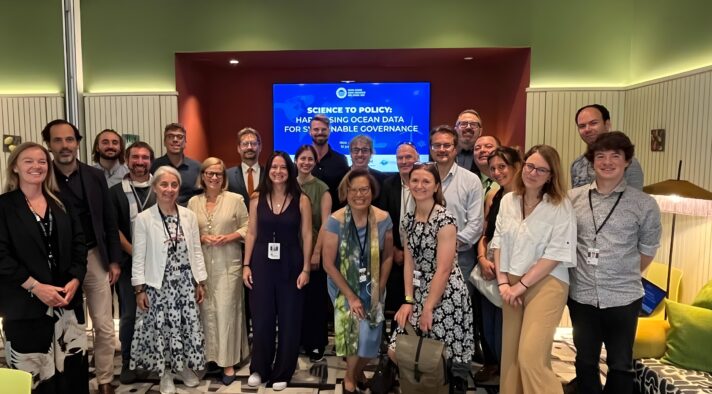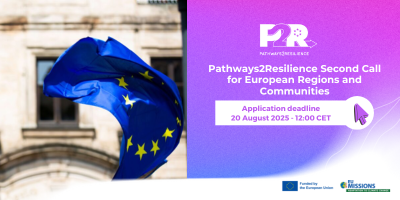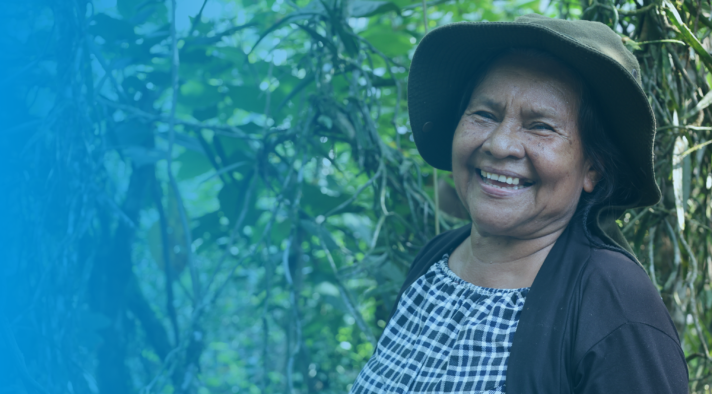Launch of RegionsAdapt Progress Report: Regional Governments Driving Climate Resilient Development
In the pursuit of a resilient and just future, RegionsAdapt is thrilled to unveil its 2023 Progress Report. This year’s report is more than just a collection of statistics; it’s a testament to the transformative power of climate adaptation at the regional level. Join us as we explore the dual focus on progress and justice, illustrating how regional governments around the world are integrating vulnerable communities and climate justice dimensions into their climate adaptation strategies.
RegionsAdapt, RegionsAdapt, Regions4’s flagship climate initiative, supports regional governments in implementing climate change adaptation strategies since 2015. Pioneering collaboration among leading regions, it boasts 70+ signatory members, impacting over 300 million citizens, mobilizing global efforts in climate adaptation.
>> Missed the official launch on December 5th? Rewatch it !
>> Meanwhile, explore an exclusive preview of the report at the bottom of the page.
Reporting Back to the Race to Resilience
In 2021, RegionsAdapt proudly joined the Race to Resilience as an official partner, aligning with the UN-backed global campaign spearheaded by the High-Level Climate Champions for Climate Action. This initiative is responding to the urgent need for coordinated action on climate adaptation, aiming to build resilience for 4 billion people in vulnerable groups and communities facing climate risks.
Since our partnership began, our annual progress reports stand as a testament to our unwavering commitment. Dive into the journey of how regional governments are fulfilling their RegionsAdapt commitments, making significant contributions to the global Race to Resilience Campaign. Explore the remarkable progress achieved since 2021, relying on data sourced from the 2023 CDP States and Regions Questionnaire and insights from interviews conducted in collaboration with the Basque Center for Climate Change (BC3).
Since 2021, 36 regional governments across 16 countries have disclosed their progress through the CDP States and Regions Questionnaires. In 2023 alone, 27 regions and members have updated their data.
Arantxa Tapia, Minister of Economic Development, Sustainability, and Environment, Government of Basque Country:
“The Basque Country is proud to lead this international effort, where regions collaborate, learn from each other, and collectively strive for a more sustainable, equitable, and resilient future.”

16 Stories of Impact on Climate Justice Integration
For the first time, the RegionsAdapt 2023 Progress Report adds a thematic layer to its narrative — an exploration into climate justice. Drawing insights from tangible examples, learn how governments, spanning States, Provinces, and Regions, are integrating vulnerable communities and climate justice dimensions into their climate adaptation planning and actions, ensuring that no community is left behind in the face of climate change.
This year’s report is not just about statistics; it’s about stories. The report features 16 short stories that exemplify how regional governments are navigating the intricate landscape of climate justice and inclusion. From innovative policies to community-driven initiatives, each story is a testament to the transformative power of resilience.
Benoit Charette, Minister of the Environment, the Fight against Climate Change, Wildlife and Parks – Government of Québec:
“This report rightly details the progress achieved by subnational states regarding action on climate justice. It illustrates how they are at the forefront of adaptation actions by developing measures that address the climate crisis while taking social issues into account. Québec is proud to contribute to the publication of this report, which highlights the extent of the progress made and underscores best practices”

Four of these stories were presented earlier this year at the Adaptation Futures 2023 conference: click on the videos below to watch these powerful narratives !
Key Findings
Subnational Governments’ Crucial Role in Climate Resilience: Subnational governments play a crucial role in leading just and effective climate resilience efforts. Active engagement with marginalized communities, inclusive adaptation, and cross-sectoral approaches are key to creating strategies that align with diverse community needs.
Promoting Climate Justice at the Regional Level: Initiatives promoting climate justice at the regional level explicitly address multifaceted inequalities within climate change adaptation strategies. These efforts can rectify disparities in resource access, assets, services, decision-making power, and leadership, contributing to the shared vision of Agenda 2030.
Inclusive Planning : Various methodologies, including the Adaptation Justice Index, evaluate the inclusion of climate justice dimensions in policy planning. While proactive engagement in procedural justice—ensuring transparent, inclusive, and fair decision-making processes—is common at the regional level, the report underscores the importance of going the extra mile to facilitate the participation of hard-to-reach and vulnerable populations.
Monitoring and Assessing Adaptation : Monitoring often tracks the progress of the implementation plan, but there is a need to address inequalities in adaptation actions. The report recommends detailed disaggregation based on socio-economic factors and the use of well-being and multi-criteria indicators (social, environmental, economic) to avoid bias.
Investing in Capacity Building and Knowledge: Strengthen the foundation! Subnational governments should invest in building the capacity of government agencies, local institutions, community leaders, and civil society. Education, training, and knowledge-sharing are vital components to understand and implement just adaptation strategies.
Selecting and Implementing Just and Equitable Adaptation Options: Think beyond resilience! When evaluating adaptation options, consider not only their climate resilience but also their potential social and environmental co-benefits. Embrace justice principles and the “Leave no one behind” concept to address structural inequalities in climate adaptation planning. Target vulnerable groups, avoid maladaptation, and promote long-term benefits for sustainable and inclusive resilience.
Loss and damage: Recognizes the role of subnational governments in vulnerable countries that are already facing loss and damage resulting from climate impacts,and takes account of their experience in designing financial support mechanisms to recover and rebuild livelihoods and infrastructure.
Access the report
The RegionsAdapt 2023 Progress Report is a testament to the collective effort towards a future that not only withstands the challenges of climate change but is also rooted in justice and inclusivity.
Download the report, be inspired by the stories it tells, and join us on the journey of forging a resilient and just world.
With the support of




